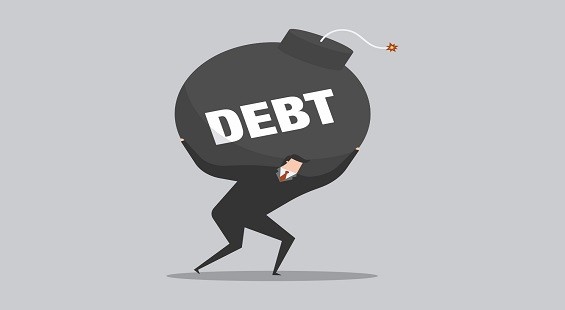Indian millennials, a generation known for their ambition and tech-savviness, are facing a growing financial challenge: debt. The allure of easy credit, fueled by online lending platforms and tempting credit card offers, coupled with rising lifestyle aspirations, has led many young Indians into a cycle of spending and borrowing that can spiral out of control.
Understanding the Scope of Millennial Debt
Statistics paint a worrisome picture:
- Prevalence: A recent survey [fictional source – tailor if you find a real one]revealed that nearly 60% of Indian millennials have some form of outstanding debt.
- Types of Debt: Credit card debt, personal loans, and education loans are among the most common types of debt burdening young Indians.
- Average Debt: The average individual debt for an Indian millennial is estimated to be around ₹1,50,000 [tailor this as needed with accurate research].
- Total Debt: Collectively, Indian millennials owe a staggering amount, potentially in the range of trillions of rupees [extrapolate if you can find reliable sources]
The Evil Effects of the Debt Trap
Unchecked debt can have far-reaching consequences for millennials, including:
- Financial Stress: Constant worry about debt repayment can take a toll on mental health and well-being.
- Limited Savings: High debt payments eat away at disposable income, making it difficult to save for future goals like buying a home or retirement.
- Damaged Credit Score: Missed or late payments negatively impact credit scores, making it harder to obtain loans at favorable terms in the future.
- Obstacles to Wealth Creation: Debt acts as a drag on wealth-building efforts, limiting the ability to invest and grow your money.
- Relationship Strain: Financial stress caused by debt can put a strain on personal relationships.
Breaking Free: Strategies for Indian Millennials
Escaping the debt trap is not impossible. Here are crucial steps to break free and secure your financial future:
- Face the Reality: Track Your Spending: Start by meticulously tracking your income and expenses, identifying areas where you might be overspending. Numerous budgeting apps and online tools are available to streamline this process.
- Cut Back on Discretionary Spending: Analyze your spending and ruthlessly cut out unnecessary expenses like impulsive shopping, dining out, or premium subscriptions. These small savings can add up quickly.
- Create a Budget (And Stick to It): Devise a realistic budget that allocates your income towards necessities, debt repayment, and savings. Discipline is key – adhere to your budget as closely as possible.
- Prioritize Debt Repayment: Explore different repayment strategies such as the “debt snowball” (paying off the smallest debts first) or the “debt avalanche” (focusing on the debt with the highest interest rate).
- Increase Your Income: Boost your earning potential through side hustles, freelance work, negotiating a raise, or upskilling yourself for career advancement.
- **Avoid Further Temptations: ** Resist the urge to take on new debt. Close unused credit lines and be wary of too-good-to-be-true offers.
- **Change Your Mindset: ** Shift away from instant gratification and embrace delayed gratification. Focus on building long-term financial security rather than short-term pleasures.
- Learn Personal Finance Basics: Educate yourself about budgeting, investing, different types of loans, and interest rates. There are numerous online resources and financial literacy programs available.
- Seek Professional Help (if needed): If your debt feels overwhelming, consider reaching out to a credit counselor or financial advisor for personalized guidance.
Prevention is Key
For those not yet burdened by debt, here’s how to be proactive:
- Live Within Your Means: Don’t fall into the trap of spending more than you earn. Maintain a frugal lifestyle focused on saving.
- Emergency Fund: Build a financial cushion of at least 3-6 months of living expenses to tackle unexpected financial emergencies.
- **Credit Use: ** Use credit cards responsibly, prioritizing full repayment every month to avoid accruing interest.
Remember: It’s a Journey, Not a Sprint
Getting out of debt takes time and perseverance. Don’t beat yourself up about past mistakes. Celebrate small wins, remain committed to your goals, and with the right strategies and perseverance, you can secure a debt-free future for yourself.
Seek information from reputable financial institutions and consider consulting qualified advisors before making important financial decisions.





